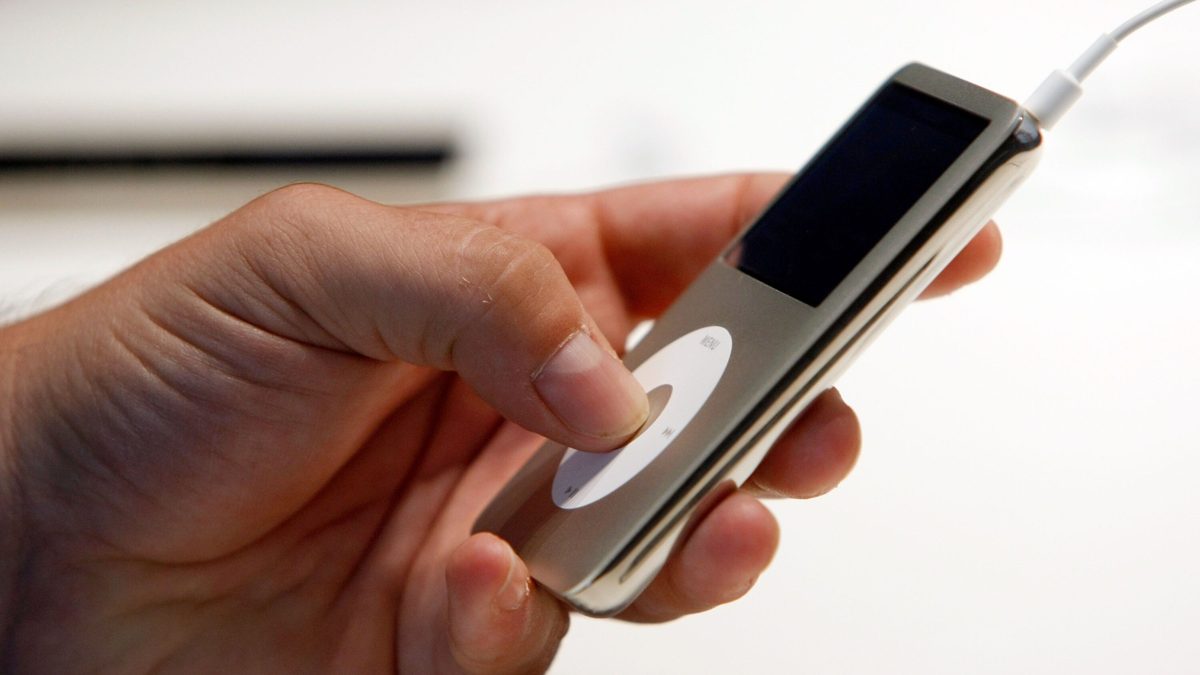The Sound of Change: Apple’s Eddy Cue Predicts the iPhone’s Demise In a world where smartphones have become an extension of ourselves, it’s hard to imagine a future without the iPhone. For over a decade, Apple’s iconic device has revolutionized the way we communicate, work, and play. But, according to Eddy Cue, Apple’s senior vice president of Internet Software and Services, the iPhone’s time in the spotlight may be limited. In a recent statement, Cue hinted that the iPhone could be a thing of the past within the next decade, paving the way for a new era in mobile technology. As we dive into the world of what’s next, one thing is certain: the future of smartphones is about to get a whole lot more interesting. In this article, we’ll explore the possibilities and predictions surrounding Apple’s future, and what this means for the industry as a whole.
The Importance of Adaptation

In an ever-evolving tech landscape, being open to new possibilities and willing to adapt is crucial for businesses to stay ahead of the curve. As Eddy Cue, Apple’s SVP of services, emphasizes, “You may not need an iPhone 10 years from now, as crazy as it sounds.” This statement highlights the importance of embracing change and being prepared to pivot when necessary. The success of Apple’s iPod, which was eventually replaced by the iPhone, serves as a prime example of the company’s ability to adapt and innovate.
Apple’s willingness to kill off its own successful product, the iPod, demonstrates the company’s commitment to staying ahead of the curve. By doing so, Apple was able to create new opportunities and expand its market share. This willingness to adapt is a key factor in Apple’s continued success and its ability to stay relevant in an ever-changing tech landscape.

Implications and Analysis
Apple’s Cash Cow
The iPhone is still a significant source of revenue for Apple, but what will happen if it becomes obsolete? The implications of the iPhone’s potential demise on Apple’s business model are far-reaching. Apple’s dependence on the iPhone for a large portion of its revenue could lead to a significant disruption to its financial situation. The company would need to diversify its revenue streams and explore new opportunities to remain profitable.
Furthermore, the iPhone’s obsolescence could also have a significant impact on Apple’s ecosystem. The iPhone is a central component of Apple’s services, including iCloud, Apple Music, and Apple TV+. If the iPhone becomes obsolete, these services could be significantly impacted, leading to a decline in user engagement and revenue.
Exploring Alternatives
Eddy Cue’s statement also mentioned Apple’s exploration of alternatives to Google Search within Safari. This development could have significant implications for the future of search. Apple’s decision to explore alternative search options could lead to a more diverse and competitive search landscape, potentially benefiting consumers.
The implications of Apple’s exploration of alternative search options are far-reaching. It could lead to the development of new search technologies and algorithms, potentially improving the overall search experience. Additionally, it could also lead to a shift in the balance of power in the search market, potentially benefiting smaller search engines and start-ups.
The Future of Search
The current state of search technology is dominated by Google, with its vast resources and extensive data collection capabilities. However, the future of search is likely to be shaped by emerging technologies such as AI and machine learning. These technologies have the potential to revolutionize the search experience, making it more personalized, efficient, and accurate.
The implications of these emerging technologies are far-reaching. They could lead to the development of more sophisticated search algorithms, capable of understanding natural language and contextualizing search queries. Additionally, they could also lead to the development of new search interfaces, potentially making search more intuitive and user-friendly.
Practical Aspects
What’s Next for Apple?
If the iPhone becomes obsolete, Apple will need to adapt and innovate to remain relevant. The company could explore new opportunities in emerging technologies such as AI, AR, and VR. Apple could also focus on developing new products and services that complement its existing ecosystem, potentially expanding its revenue streams.
Furthermore, Apple could also focus on developing its services business, potentially expanding its offerings to include new services such as cloud computing, cybersecurity, and data analytics. By diversifying its revenue streams, Apple could reduce its dependence on the iPhone and maintain its position as a leader in the tech industry.
The Impact on Consumers
The impact of the iPhone’s obsolescence on consumers would be significant. The iPhone has become an integral part of modern life, with many consumers relying on it for communication, entertainment, and information. The loss of the iPhone could lead to a significant disruption in the way consumers live and work.
Consumers could potentially adapt to new technologies and interfaces, but it would likely require significant changes to their daily routines and habits. The impact on consumers would be particularly significant for those who rely heavily on the iPhone for work, education, or healthcare.
The Role of Regulators
The role of regulators in shaping the future of the tech industry is crucial. Regulators could play a key role in ensuring fair competition and promoting innovation. By regulating industries such as search and social media, regulators could promote a more diverse and competitive landscape, potentially benefiting consumers.
Regulators could also play a key role in addressing concerns around data privacy and security. By implementing robust regulations and guidelines, regulators could help ensure that consumers’ personal data is protected and secure. This would be particularly important in the event of the iPhone’s obsolescence, as consumers would need to adapt to new technologies and interfaces.
Conclusion
In conclusion, Apple’s Eddy Cue’s recent statement that the iPhone may be gone in 10 years has sent shockwaves throughout the tech industry. As summarized in the article, Cue’s comment highlights the rapid evolution of technology and the ever-changing nature of consumer demand. The article notes that the iPhone’s dominance in the smartphone market has led to stagnation, and Cue’s assertion that the device may cease to exist in a decade underscores the need for innovation and adaptability.
The significance of this topic lies in its far-reaching implications for the tech industry, consumers, and the economy. If the iPhone does indeed disappear, it would signal a major shift in the way we interact with technology and potentially reshape the entire smartphone market. The article also touches on the rise of alternative devices, such as smartwatches and headphones, which could fill the void left by the iPhone’s potential demise.
Looking ahead, it’s clear that the future of technology is uncertain and exciting. As we continue to navigate the complexities of AI, AR, and VR, it’s essential to remain open to new ideas and innovations. Cue’s statement serves as a reminder that the tech industry must continually adapt to changing consumer demands and technological advancements. As we step into the unknown, one thing is certain: the future of technology will be shaped by pioneers like Apple, and we can only imagine the innovative possibilities that await us. The end of the iPhone as we know it may be near, but the next revolution is just around the corner, and the possibilities are endless.
